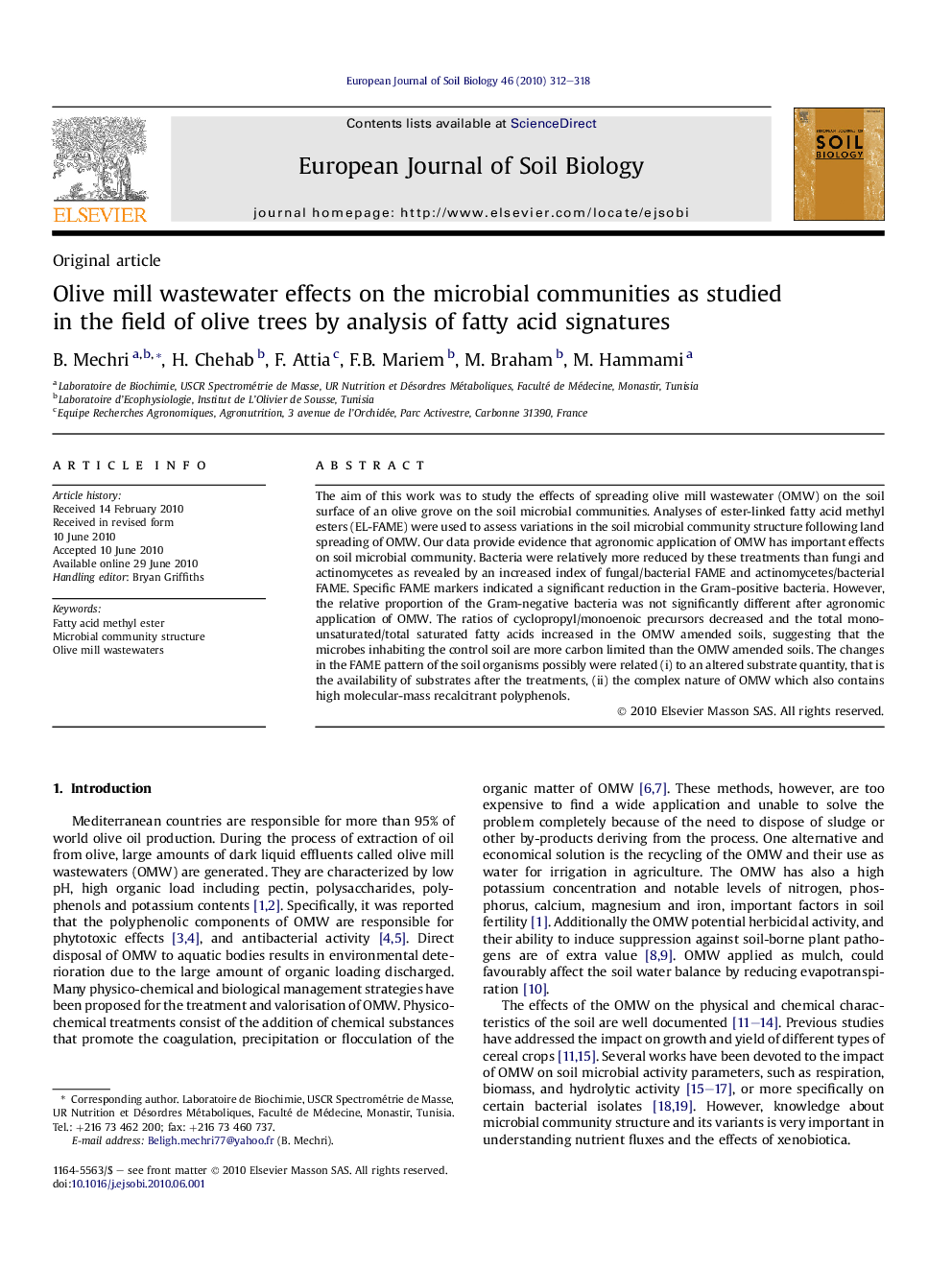| Article ID | Journal | Published Year | Pages | File Type |
|---|---|---|---|---|
| 4392111 | European Journal of Soil Biology | 2010 | 7 Pages |
The aim of this work was to study the effects of spreading olive mill wastewater (OMW) on the soil surface of an olive grove on the soil microbial communities. Analyses of ester-linked fatty acid methyl esters (EL-FAME) were used to assess variations in the soil microbial community structure following land spreading of OMW. Our data provide evidence that agronomic application of OMW has important effects on soil microbial community. Bacteria were relatively more reduced by these treatments than fungi and actinomycetes as revealed by an increased index of fungal/bacterial FAME and actinomycetes/bacterial FAME. Specific FAME markers indicated a significant reduction in the Gram-positive bacteria. However, the relative proportion of the Gram-negative bacteria was not significantly different after agronomic application of OMW. The ratios of cyclopropyl/monoenoic precursors decreased and the total monounsaturated/total saturated fatty acids increased in the OMW amended soils, suggesting that the microbes inhabiting the control soil are more carbon limited than the OMW amended soils. The changes in the FAME pattern of the soil organisms possibly were related (i) to an altered substrate quantity, that is the availability of substrates after the treatments, (ii) the complex nature of OMW which also contains high molecular-mass recalcitrant polyphenols.
